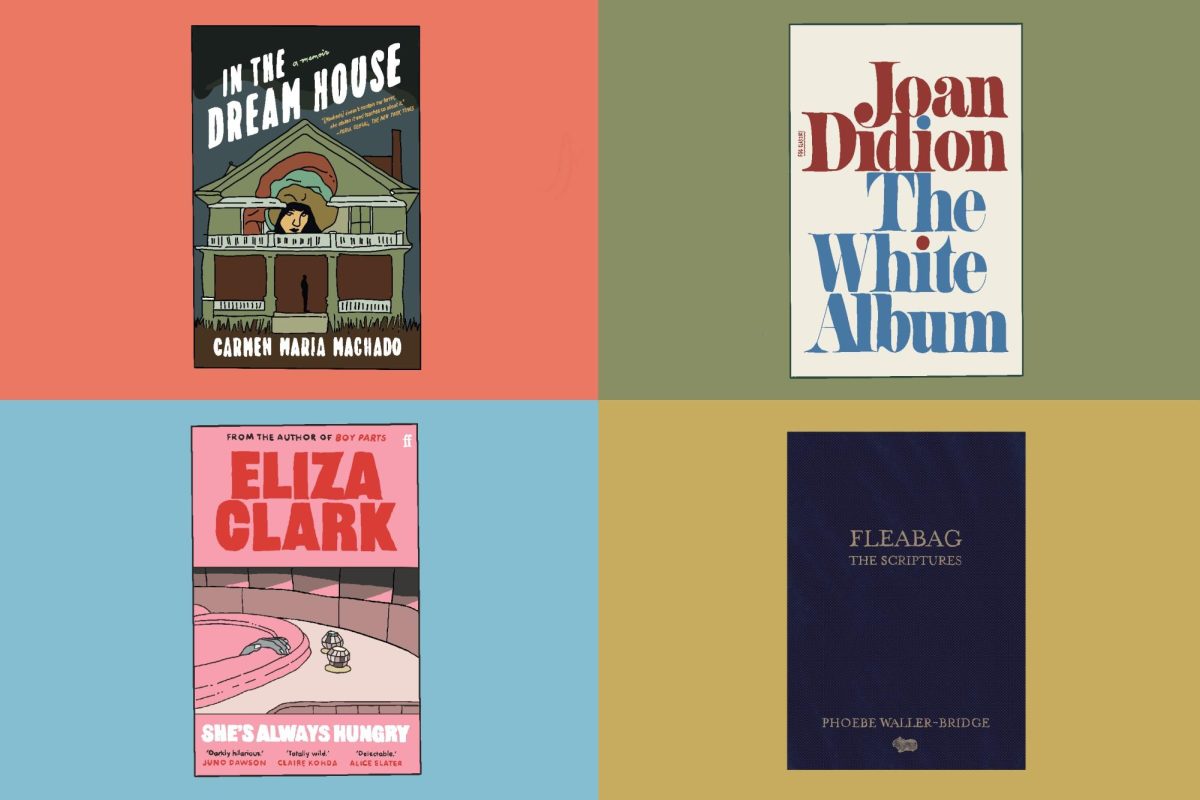“The White Album” by Joan Didion
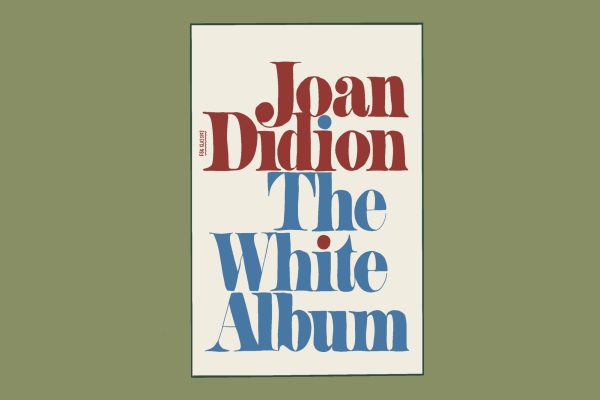
“We tell ourselves stories in order to live.”
I have been praying at the altar of Joan Didion since I was a melancholic teenager, so I like to think I know a thing or two about her work. I’ve come to understand that “The White Album” has been popular for decades for a reason. The 1979 collection of essays by the esteemed New Journalist tackles the chaos that was the 1960s with decisive prose and incredible reporting.
Didion tackles subjects from Georgia O’Keeffe and the women’s movement to the culture of Hollywood and everything in between. Not only does she write poignant essays on the state of the country in the ’60s and the aftermath of the rocky decade, she also provides readers with a glimpse of autobiography, especially in the book’s titular essay. Didion gives us her portrait of the often-mystified period of American history, and she paints it extremely well.
— Alexa Donovan, Arts Editor
“She’s Always Hungry: Stories” by Eliza Clark
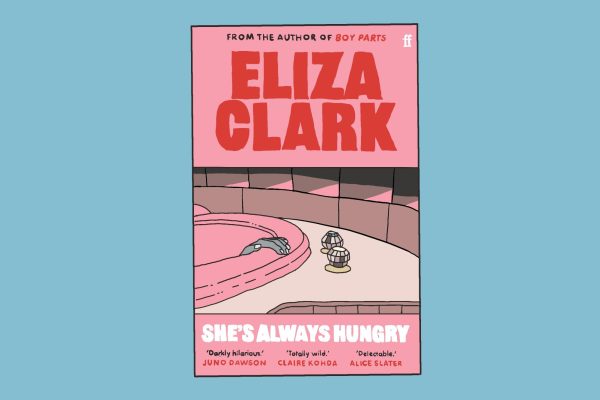
Eliza Clark’s newest release, “She’s Always Hungry,” is a socially conscious foray into the world of body horror. Despite the different universes the book travels through, each story ties back to the concept of hunger — whether it be hunger for power, hunger for survival or simply a desire to vanquish your own hunger to maintain an unrealistic body standard.
At once disturbing, comedic and emotionally impactful, this collection of short stories is a true dedication to experimental writing. From a xeno-botanist who discovers carnivorous plants capable of slowing climate change to a teenage girl who unknowingly trades her pimple-covered skin for porcelain in order to impress her boyfriend, I never knew where this collection would go next, and yet I savored every strange twist and turn. Clark does an impressive job of integrating Gen Z humor without it feeling dated, instead turning such outrageous stories into relatable, horrific microcosms of the social issues we face today.
— Anna Baird-Hassell, Deputy Managing Editor
“In the Dream House” by Carmen Maria Machado
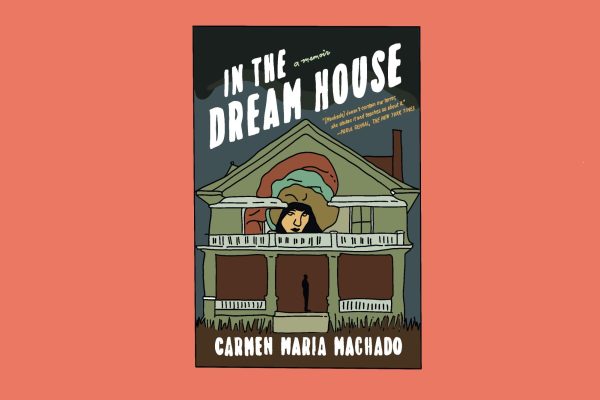
Published in November 2019, “In the Dream House” takes readers through a tumultuous relationship between author Carmen Maria Machado and her abusive ex-girlfriend. Masterfully weaving retrospective commentary and cultural references with moving stories of the home and life she once shared with her partner, the book is guaranteed to impact readers with its profound and haunting reflection on love, trauma and the complexities of memory.
Though the writing is dense, “In the Dream House” is still extremely accessible with several of its short chapters lasting only two to three pages, allowing me to read the book in only a day or two. As someone who appreciates a quick read every once in a while, I was not expecting such a short book to have such a long-lasting effect. As Machado writes about her own unique experience, she becomes a voice for countless other LGBTQ+ people — the memoir has been praised for bringing awareness to abuse in LGBTQ+ relationships, winning a number of accolades. While nothing I write here can eloquently describe the power of Machado’s words, I highly recommend this book to anyone who feels their experience has been overlooked or left unheard.
— Sadie Pease, Contributing Writer
“Fleabag: The Scriptures” by Phoebe Waller-Bridge
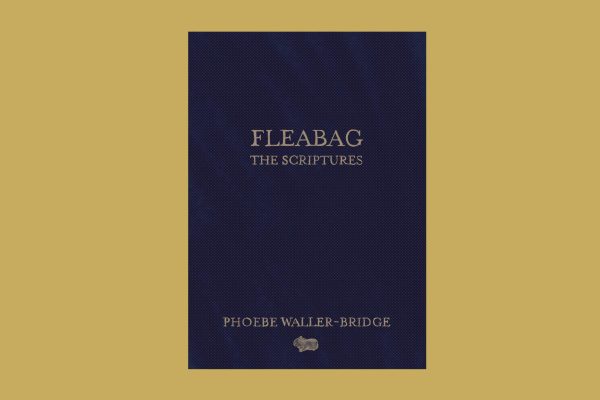
Before her fourth wall breaks on the Emmy-winning TV series became notorious, Phoebe Waller-Bridge turned the stage into her confessional. Her self-styled, one-woman show explores sex, grief and familial strains through a series of simulated conversations and monologues. Waller-Bridge’s recollected stories are emotional and provocative, entertaining the audience by seeming to divulge her secrets openly, if only to keep her inner turmoil out of view.
I often prefer watching plays to reading the scripts behind them because so much of a story’s pull can rely on the actors’ deliveries, and they can feel more engaging and emotional. “Fleabag” was an exception for me in that Waller-Bridge’s personality shines through on each page, with her witty non sequiturs and snark serving to carry the tale forward through the writing alone. Despite my better efforts, I’ve never been able to find a recording of the play itself, or at least one through a link that I could navigate to without needing to dodge questionable pop-up advertisements.
— Eleanor Jacobs, Music Editor
Contact the Arts Desk at [email protected].
























































































































































